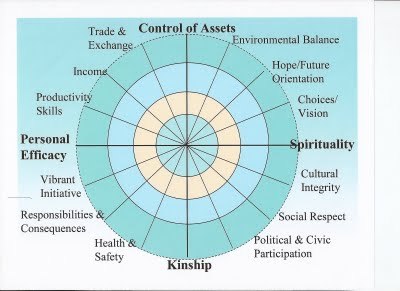From the Eagle Watch
October 4, 2013
FYI
http://halifax.mediacoop.ca/story/elsipogtog-chief-issues-eviction-notice-texas-base/1909
Elsipogtog Chief issues eviction notice to Texas-based frackers. Band Council Resolution to reclaim all unoccupied Crown Land
SWN – Leave by midnight, says chief to Treaty Day crowd of hundreds
by Miles Howe
REXTON, New Brunswick – In what may well go down as an historic Treaty Day, Eslipogtog First Nation’s Chief Arren Sock today presented a Band Council Resolution stating that his community is prepared to reclaim all unoccupied Crown Lands in Signigtog District, which comprises most of present day provincial New Brunswick. The resolution was read to an exuberant crowd of hundreds of supporters from across Kent County, New Brunswick, and beyond.
–
“Whereas Prime Minister Harper and the Canadian Government have washed their hands with regards to the environmental protection of our lands and waters,” read Chief Sock from a prepared statement.
–
“And whereas the provincial government has turned over all lands entrusted to them by the British Crown to a corporation for their own benefit.
–
And whereas our lands have been assaulted by clear-cutting and hardwood spray for the benefit of a few.
–
And whereas the Queen, under whose name our lands are entrusted, has shown unequivocally that she will not protect our interests.
And whereas our present lands are not adequate for our populations.
And whereas our lands have not yielded the amount capable of supporting our people due to mismanagement.
–
And whereas we are capable of managing our lands better than other governments or corporations.
–
And whereas we have lost all confidence in governments for the safekeeping of our lands held in trust by the British Crown.
–
And whereas a notice of eviction from our Keptin has been totally ignored by the provincial government and Southwestern Energy.
–
And whereas we have been compelled to act and save our water, land and animals from ruin.
–
Therefore, let it be resolved at a duly convened band council meeting, let it be known to all that we as Chief and council of Elsipogtog are reclaiming all unoccupied reserved native lands back and put in the trust of our people.
–
Furthermore, we have been instructed by our people that they are ready to go out and stake their claims on unoccupied Crown lands for their own use and benefit.”
–
Councillor Robert Levi from Elsipogtog then announced that the Elsipogtog band chief and council would be issuing SWN Resources Canada an eviction notice to have all their equipment removed from their currently blockaded, Irving-owned, compound along highway 134.
–
The notice of eviction will demand that SWN vacate by midnight, tonight, October 1st.
Jim Pictou, representing the Mi’gmaw Warriors Society, noted that the society would personally escort them out of the province of New Brunswick.
–
Chief Candice Paul of St. Mary’s First Nation then offered the support of members of her community in assisting the Warriors in their escort.
–
In terms of the larger scope, the future implications of this Band Council Resolution remain unclear, but massive. Chief Sock alluded to the potential of mis-allocated royalty payments on equipment on Crown land, which currently goes to the province, but would benefit – and is due – to his community.
–
As far as the immediate issue of evicting SWN Resources Canada’s blockaded seismic testing equipment, the chief kept his cards close when asked what would be done if the Texas-based gas company chose to ignore his eviction notice.
–
“We have planned next steps. But right now we’re just going to keep that amongst ourselves as Elsipogtog Chief and Council,” said Sock.
–
Sock also noted that he had not yet spoken to representatives from the provincial New Brunswick government, but that they had a copy of the resolution and the eviction notice.
“I want a moratorium on fracking in New Brunswick,” said Sock. “Until if there is such a time that they can come up with a safer solution on how to extract shale gas. Right now I am here for our children and their children’s children. Right now nobody can guarantee a safe and effective way of extracting shale gas without harm to the environment.
–
“No more negotiations with anybody.”
Fracking linked to radioactive river water in Pennsylvania
Has fracking contaminated water supplies? A Duke University study says its wastewater wasn’t adequately treated before being released into a Pennsylvania river, causing elevated levels of radioactivity.
River water in western Pennsylvania has elevated levels of radioactivity, some of it from fluids discharged after natural gas extraction, says a Duke University study today that’s likely to stir more controversy over the booming business of “fracking.”
Radium levels were about 200 times greater in sediment from a creek where wastewater was discharged from a treatment plant than in sediment upstream, according to the peer-reviewed study in the Environmental Science & Technology journal. The amount exceeded thresholds for safe disposal of radioactive waste.
“We were surprised by the magnitude of radioactivity,” says co-author Avner Vengosh, geochemistry professor at Duke’s Nicholas School of the Environment. “It’s unusual to find this level,” he says, urging that other sites be investigated and that such water not discharged.
Treatment plants can remove much of the radioactivity and chemicals — but not all, the Duke study says. Between August 2010 and November 2012, researchers sampled sediment from Blacklick Creek, where wastewater was discharged by the Josephine Brine Treatment Facility about an hour east of Pittsburgh, and compared it with stream water above and below the disposal site. It found that some of the effluent came from Marcellus Shale fluids, which are naturally high in salinity and radioactivity.
The study is the latest in a bevy of research into the environmental impacts — both water and the air — of hydraulic fracturing or fracking. In this process, which has contributed to a surge in U.S. natural gas production, water mixed with sand and potentially toxic chemicals is blasted underground to break apart shale rock and release the gas.
An earlier Duke study, released in June by some of the same authors, found that drinking water wells near fracking sites in northeastern Pennsylvania were six times more likely to be contaminated than other wells. Other research has linked earthquakes to wells where fracking’s wastewater is injected deep underground.
But other research has found little harm from fracking. Duke and federal scientists, in a study released earlier this year, found no evidence that shale gas production in Arkansas caused groundwater contamination. A Department of Energy study this year also found no proof that fracking chemicals tainted drinking water aquifers at a western Pennsylvania drilling site.
Scientists attribute the mixed research results to varying geology and industry practices nationwide. Fracking fluids are sometimes reused or disposed of in deep injection wells, but in some cases, they are treated and released into public waterways.
Years of such disposal have created “potential environmental risks for thousands of years to come,” says Vengosh, adding that the water will need to be cleaned.
An industry group faults the Duke study as outdated and biased. “The shale industry has not taken flow-back water to this treatment facility, or any similar facility in Pennsylvania, since May 2011,” says Patrick Creighton, spokesman of the Marcellus Shale Coalition. He cites 2011 tests by state environment officials that showed no radioactive contaminants in the water used and produced at 12 of 14 water suppliers in western Pennsylvania.
Creighton says the study’s partial funding from New York-based Park Foundation, which has supported some anti-fracking projects, raises questions about impartiality.
“We’re scientists. We don’t have an agenda,” Vengosh says, noting that the foundation provided only minimal funding — $70,000 — for field work. He says the study, like prior Duke research that hasn’t found evidence of fracking-related water problems, was reviewed by an independent group of scientists prior to publication.
In May, the U.S. Environmental Protection Agency (EPA) fined Fluid Recovery Services, which acquired the Josephine plant in a merger, $83,000 for discharge violations from that facility and two others in Pennsylvania. It required the company, which was bought this year by Aquatech International, to invest $30 million in upgrades before it can discharge more fracking wastewater. The EPA said the facilities stopped such discharges in September. 2011.
“What’s lacking is enforced monitoring,” Vengosh says, noting that the samples collected by Duke suggest that radioactive water was still being discharged in 2012. He says more research is needed.
Scott Anderson,a drilling expert with the Environmental Defense Fund, a research and advocacy group, agrees. “The real problem,” he says, “is we don’t have a good handle on the full range of risks posed by treatment and discharge” of water from oil and gas fields.
Next year, the EPA is expected to release a draft of its own study on fracking’s potential impact on drinking water supplies.


